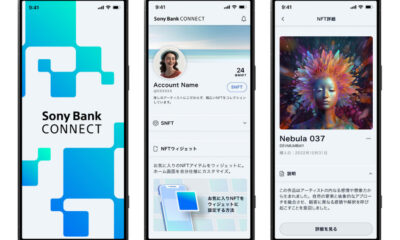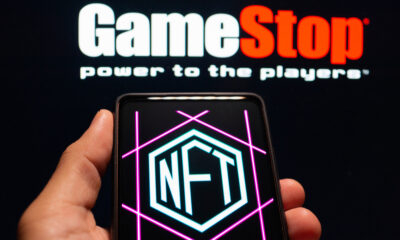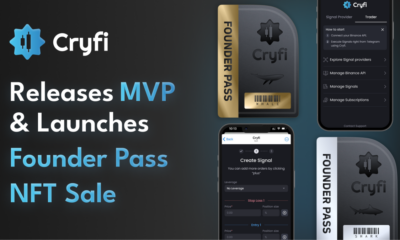NFTs
The future of NFTs – opening a new era of digital possibilities | NFT CULTURE | NFT News | Web3 Culture

Introduction: Navigating the NFT Revolution
Non-Fungible Tokens (NFTs) have gone from a niche technological novelty to a cornerstone of digital innovation, promising an expansive future where almost everything can be tokenized. These unique and non-interchangeable digital assets are more than just a new art form; they represent a fundamental shift in how we perceive and manage property digitally.
The Expanding Kingdom of NFTs in the Digital Economy
The application of NFTs goes beyond artistic expression, embedding itself deeply into the structure of the digital economy. They offer new ways to protect, validate and monetize ownership. From virtual goods in games to items in the digital fashion industry, NFTs facilitate a vibrant ecosystem of commerce and investment, all recorded in immutable ledgers. As companies adapt to this new model, we may see a change in the way goods and services are bought, sold and even conceptualized.
Example: NBA Top Shot – This platform allows fans to buy, sell and trade officially licensed NBA collectible highlights as NFTs. These digital assets not only created a new revenue stream for the NBA, but also introduced sports memorabilia to the blockchain, engaging a community of sports fans in the digital economy.
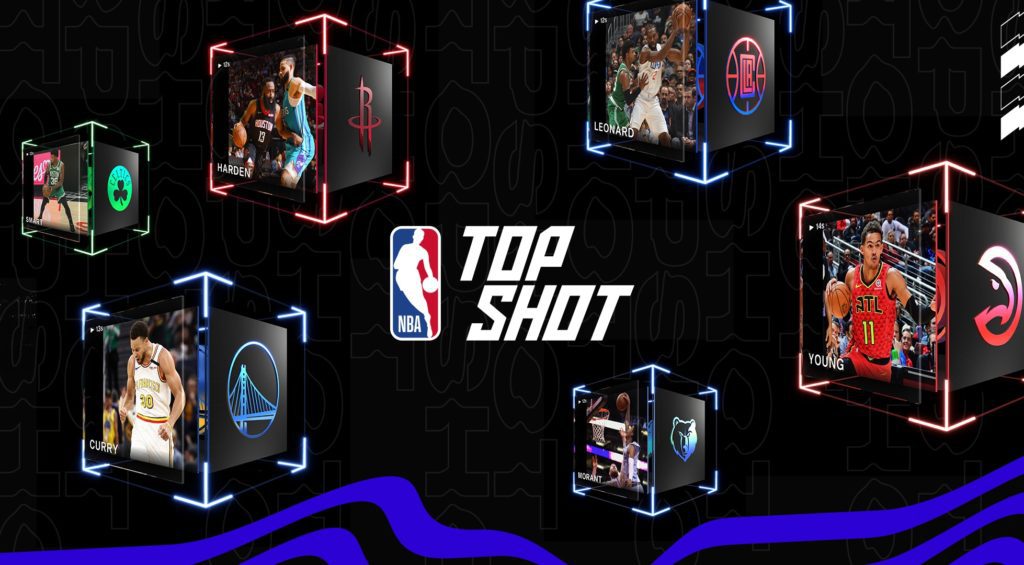
Transforming art with digital brushstrokes
The art world has undergone a radical transformation thanks to NFTs. Artists are now leveraging this technology to reach global audiences, secure royalties through smart contracts, and explore new artistic expressions in virtual reality environments. This paradigm shift not only democratizes art, but also injects it with a new layer of interactivity and immersion. Additionally, the secondary market for NFT art allows collectors to resell pieces, potentially earning original artists passive income through royalties, which could redefine artists’ relationships with their creations and supporters.
“Every Day: The First 5,000 Days” by Beeple – This digital work of art, a collage of 5,000 daily images, was sold at Christie’s for a record $69 million. This sale highlighted the significant impact NFTs are having on the art world, providing artists with innovative ways to monetize their work.
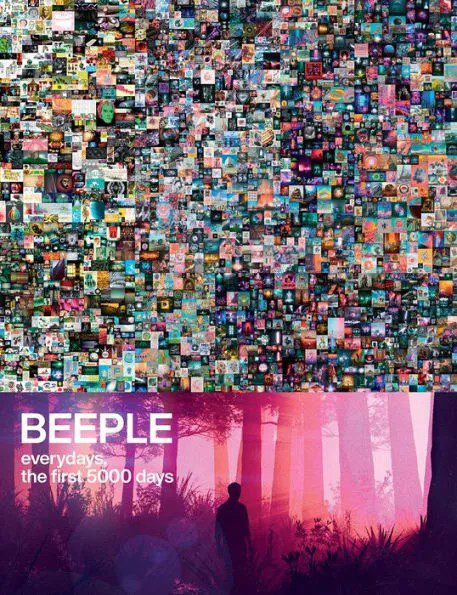
Virtual real estate: building the foundations of digital land
In virtual worlds like Decentraland and The Sandbox, NFTs are not just assets, but parcels of digital land. This growing virtual real estate market offers a playground for creativity and commerce as users build, trade and inhabit digital spaces, creating expansive online communities. This aspect of NFTs could lead to new forms of digital urban planning and development, where users not only design but also govern their virtual environments, possibly mirroring or diverging greatly from real-world principles.
Decentralized – A virtual reality platform where users purchase land as NFTs to create and monetize content and applications. Decentraland has hosted everything from virtual concerts to conferences, establishing a new model for digital and real estate experiences.

Leveling Up: The Intersection of Gaming and NFTs
The gaming industry will be revolutionized by NFTs. Players can now actually own in-game items – from weapons to costumes – and trade them as they see fit, introducing real-world economic concepts into virtual realms. This change not only improves the gaming experience, but also allows players to derive tangible value from their online adventures. Furthermore, it could lead to the development of entirely new economic systems within games, potentially profoundly impacting game design and player engagement.
Infinite Axie – A blockchain-based game that allows players to collect, breed, breed, battle and trade token-based creatures known as Axies. These NFTs can be sold on various Ethereum NFT marketplaces, demonstrating how gaming assets can maintain value in the real world.
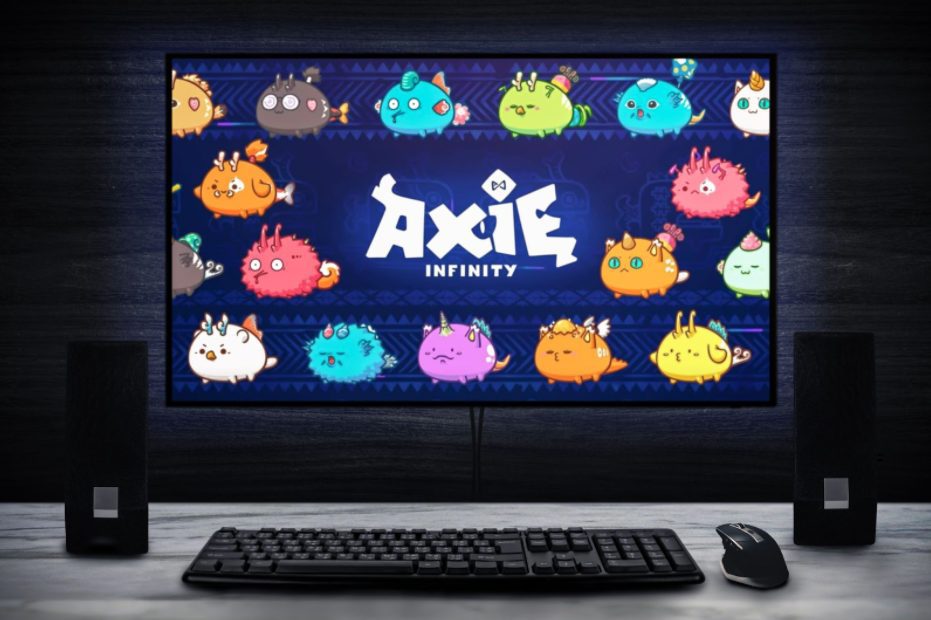
Fashion Forward: the chic side of NFTs
High fashion has entered the digital realm, with brands like Gucci leading the charge by linking NFTs to exclusive physical items. This convergence of digital and physical domains increases authenticity and exclusivity, setting the stage for a new era of luxury goods consumption. The fusion of fashion and technology could also lead to innovations like digital wardrobes for virtual identities, expanding the market for designer brands in the virtual space.

The Beat Goes On: NFTs in the music industry
Musicians are leveraging NFTs to change the pace of content distribution. By offering limited edition releases and unique fan experiences as NFTs, artists foster a closer connection with their audiences, paving the way for innovative approaches to ownership and profit sharing in the music industry. This could revolutionize music rights management and open up new sources of revenue for artists, reducing their dependence on traditional media and distribution channels.
“When You See Yourself” by Kings of Leon – This album was released as an NFT, offering special perks like limited edition vinyl and concert tickets, illustrating how musicians can utilize blockchain technology to offer exclusive collectible merchandise alongside traditional media.
Empowering Communities: DAOs and NFT Governance
Decentralized Autonomous Organizations (DAOs) play a critical role in the NFT ecosystem, allowing communities to collectively make decisions about projects. This participatory governance model not only ensures transparency, but also empowers users, promoting a sense of ownership and accountability in the digital space. DAOs could potentially redefine the way artistic and other creative projects are funded, created and distributed, making the process more democratic and community-driven.
Flamingo DAO – A decentralized autonomous organization focused on NFT investments. This collective pools resources to invest in digital art and other NFTs, showcasing the power of community governance in decision-making and asset management in the NFT space.
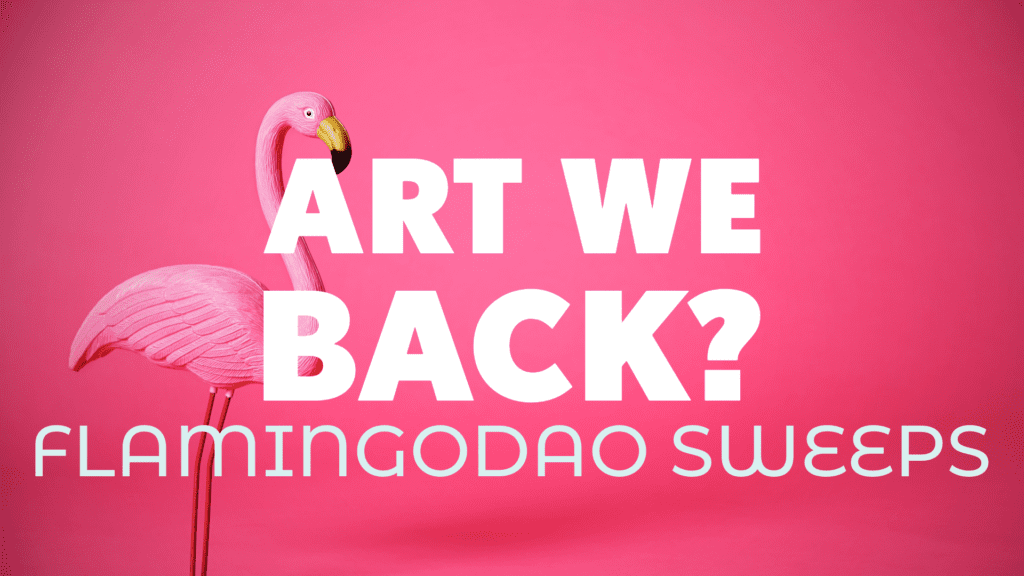
Beyond Art: NFTs as Tools for Identity and Security
The usefulness of NFTs extends to digital identity verification, offering a secure and efficient method for managing and authenticating identities online. This application has significant implications for reducing fraud and streamlining digital interactions in our increasingly online world. It could also improve user privacy by allowing individuals to control what personal data is shared and with whom, all managed through blockchain technology.
Microsoft ION – A layer 2 network built on Bitcoin that facilitates the creation of digital IDs. While not strictly an NFT app, it uses similar decentralized technology to manage digital identities, suggesting how NFTs could evolve to securely verify personal identity.
A Greener Future: Eco-Friendly NFTs
Amid growing concerns about the environmental impact of blockchain technologies, the shift to more sustainable practices such as proof of stake promises a greener future for NFTs. This evolution is crucial as the community seeks to balance innovation with environmental responsibility. New blockchain networks are emerging that prioritize low-energy and carbon-offsetting initiatives, with the aim of mitigating environmental concerns associated with previous blockchain technologies.
Proof-of-stake blockchains like Tezos – Tezos uses a proof-of-stake consensus mechanism, which is more energy efficient than proof-of-work systems used by platforms like Ethereum. Artists and creators are increasingly choosing Tezos to mint NFTs to reduce their environmental impact.
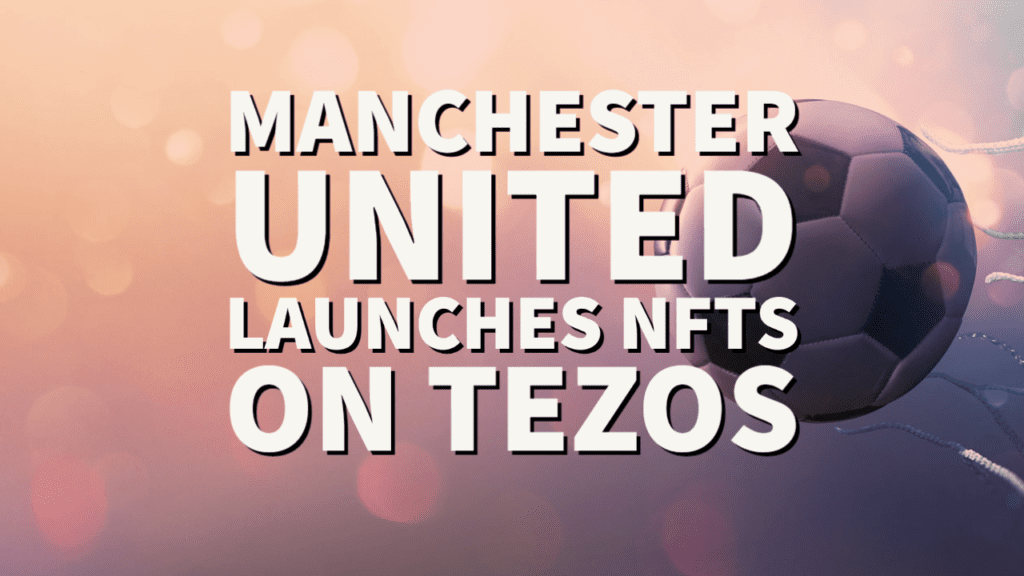
Conclusion: the limitless horizon of NFTs
The journey of NFTs is just beginning. With each technological advance, new applications emerge, expanding our understanding of property and value in the digital age. As we continue to innovate, the influence of NFTs will expand, reshaping industries and improving the way we connect and create in the digital world.
TLDR: NFTs are shaping up to revolutionize multiple industries, from art and real estate to gaming and music, with advances focused on sustainability and community governance. As technology evolves, so do the applications of NFTs, making digital interactions more valuable and meaningful.
Tag: #NFTs, #Digital Economy, #Digital Art, #Virtual Real Estate, #BlockchainGaming, #FashionTech, #Music Industry, #DAO, #Digital Identity, #Sustainable Blockchain
NFTs
RTFKT Announces Project Animus Reveal, Launches Egg Unboxing Event Amid Mixed Reactions | NFT CULTURE | NFT News | Web3 Culture
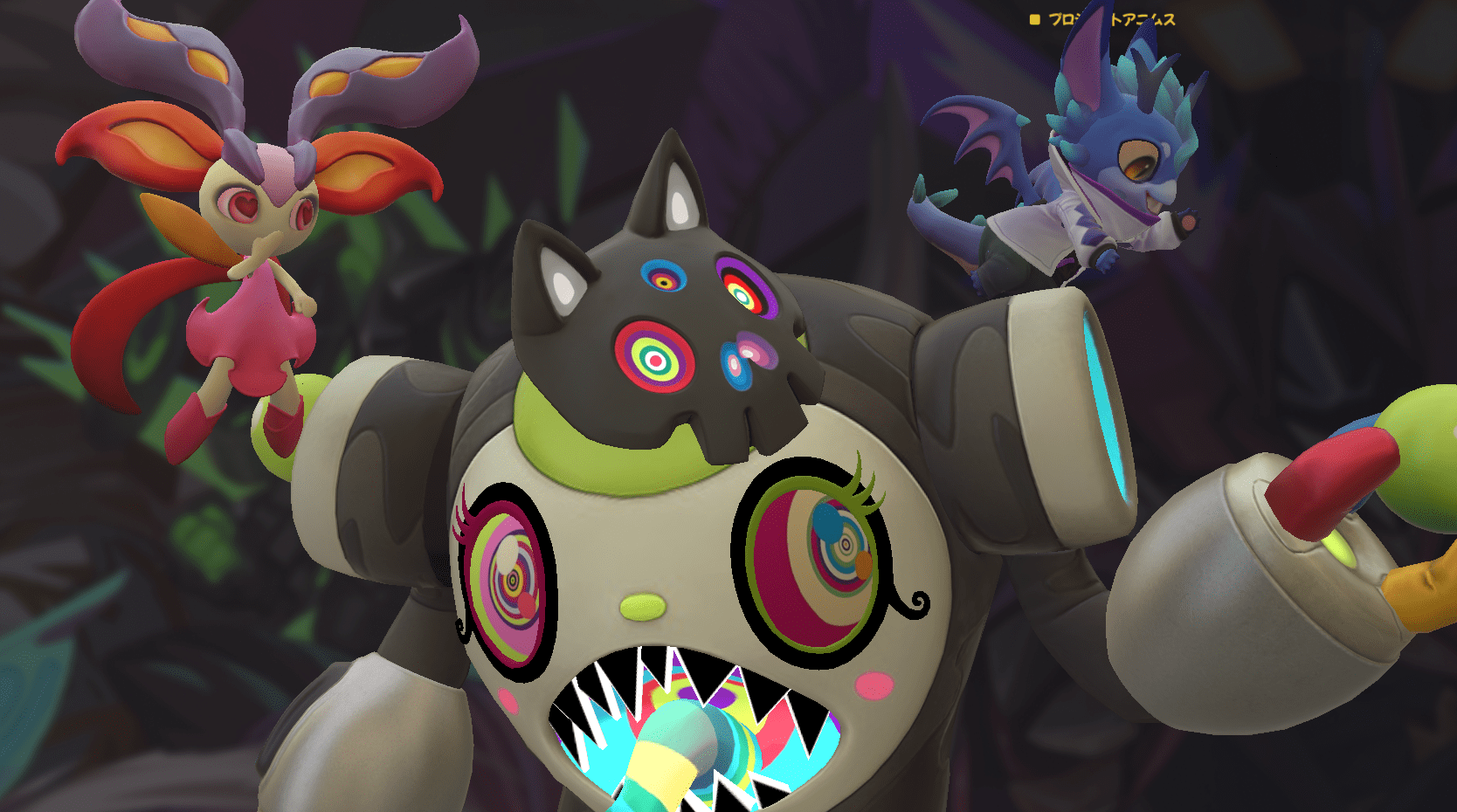
RTFKT, the innovative creator-led company renowned for its cutting-edge sneakers and metaverse collectibles, has officially unveiled its highly anticipated collection, Project Animus. This project marks a significant milestone in RTFKT’s journey, introducing a new dimension to its digital universe after a long period of development. However, the initial market response has been disappointing, with the revealed Animi trading at a floor price of 0.05 ETH, significantly lower than the eggs’ floor price of 0.09 ETH.
The Genesis of the Project Animus
Initially introduced in October 2022, Project Animus introduces a unique ecosystem of digital creatures called Animi. These Animi are designed to enhance Clone X’s avatars, offering an immersive and engaging experience for the community. The recent reveal showcased a diverse range of Animi species, each with distinct design traits and elemental attributes, breaking away from traditional trait-based rarity systems.
A New Digital Frontier: The History and Evolution of Project Animus
The Animus Project is RTFKT’s latest intellectual property, promising to revolutionize the NFT space with its unique digital creatures. The journey kicked off on October 8, 2022, with an interactive teaser event called “The Eggsperience.” This livestream event allowed attendees to explore a virtual Animus Research Facility, generating intrigue and excitement among the community.
Renowned artist Takashi Murakami played a significant role in the project, revealing the first Murakami-themed Animus creature, Saisei, on April 30, 2023. This collaboration added a layer of artistic prestige to the project, further elevating its status within the NFT community.
Animus Egg Incubation: A Journey from Egg to Animi
Clone X NFT holders had the opportunity to claim an Animus Egg until March 1, 2024. This was followed by the Animus Egg Hatching event, which ran from May 7 to June 4, 2024. During this period, holders of several RTFKT NFTs, including Clone X, Space Pod, Loot Pod, Exo Pod, and Lux Pod, were able to use a points-based system to increase their chances of hatching rarer Animi. The limited supply of Project Animus Eggs is capped at 20,000, with no public sale planned.
Mixed market reception
Despite the excitement and innovative features, the market reaction to the reveal of Project Animus has been lukewarm. Animi is currently trading at a floor price of 0.05 ETH, significantly lower than the eggs’ floor price of 0.09 ETH. This discrepancy has led to disappointment among some collectors who had high expectations for the project.
What Awaits Us: The Future of Project Animus
Following the reveal, RTFKT plans to release a collection of exclusive Animus Artist Edition characters. Holders of Clone X Artist Edition NFTs are guaranteed to get one of these special editions. The distribution will include 88 Special Edition Animus, with 8 Mythic (Dragon Sakura), 40 Shiny, and 40 Ghost Animus. The odds of receiving a Special Edition Animus are the same for all Eggs hatched, regardless of the points accumulated.
The remaining Animus characters will be distributed among unhatched Eggs, encompassing Special Edition Animus, as well as Cosmic Animus and Murakami Element from Generation 1, Generation 2, and Generation 3.
Conclusion
RTFKT’s Project Animus represents a bold step forward in the NFT space, combining cutting-edge technology with artistic collaboration to create an immersive and innovative digital ecosystem. However, the initial market reception highlights the challenges of living up to high expectations in the ever-evolving NFT landscape. As the project continues to evolve, it promises to deliver unique experiences and opportunities for its community, solidifying RTFKT’s position as a leader in the metaverse and digital collectibles arena.
Summary: RTFKT has unveiled Project Animus, introducing a unique ecosystem of digital creatures called Animi designed to enhance Clone X avatars. Despite the excitement, market response has been mixed, with Animi trading at a lower floor price than eggs. The project kicked off with an interactive event in October 2022, featuring collaborations with artist Takashi Murakami. Following the reveal, RTFKT will release special edition Animus characters. The total supply of Animus Eggs is limited to 20,000, with no public sale planned.
NFTs
The Olympics have reportedly ditched Mario and Sonic games in favor of mobile and NFTs

The long and historic partnership between Nintendo and Sega to create video games for the Olympics reportedly ended in 2020 as event organizers sought opportunities elsewhere.
Lee Cocker, who served as executive producer on several Mario & Sonic Olympics titles, said Eurogamer the International Olympic Committee let the licensing agreement lapse because it “wanted to look at other partners, NFTs and esports.”
“Basically, the IOC wanted to bring [it] “Turn inward and look for other partners so you can get more money,” Cocker added.
The 2024 Summer Olympics kicked off in Paris last week, but there were no Mario & Sonic games available in time for the event to begin – the first time this has happened since the original release in 2007 to coincide with the 2008 Beijing Summer Olympics.
Over the past two decades, there have been four Mario and Sonic adaptations for the Summer Olympics, as well as two for the Winter Olympics.
This year, instead of a Nintendo/Sega title, the IOC released Olympics Go! Paris 2024, a free-to-play mobile and PC title developed by nWay, which has worked on several Power Rangers games.
Olympics Go! allows players to compete in 12 sports and unlock NFTs from the Paris 2024 digital pin collection.
The original Mario & Sonic at the Olympic Games was announced in March 2007 and marked the first time the two mascots – once archrivals in the console wars of the 1990s – appeared together in a game.
NFTs
DraftKings abruptly shuts down NFT operation, leaving collectors panicking over vast holdings of digital tokens
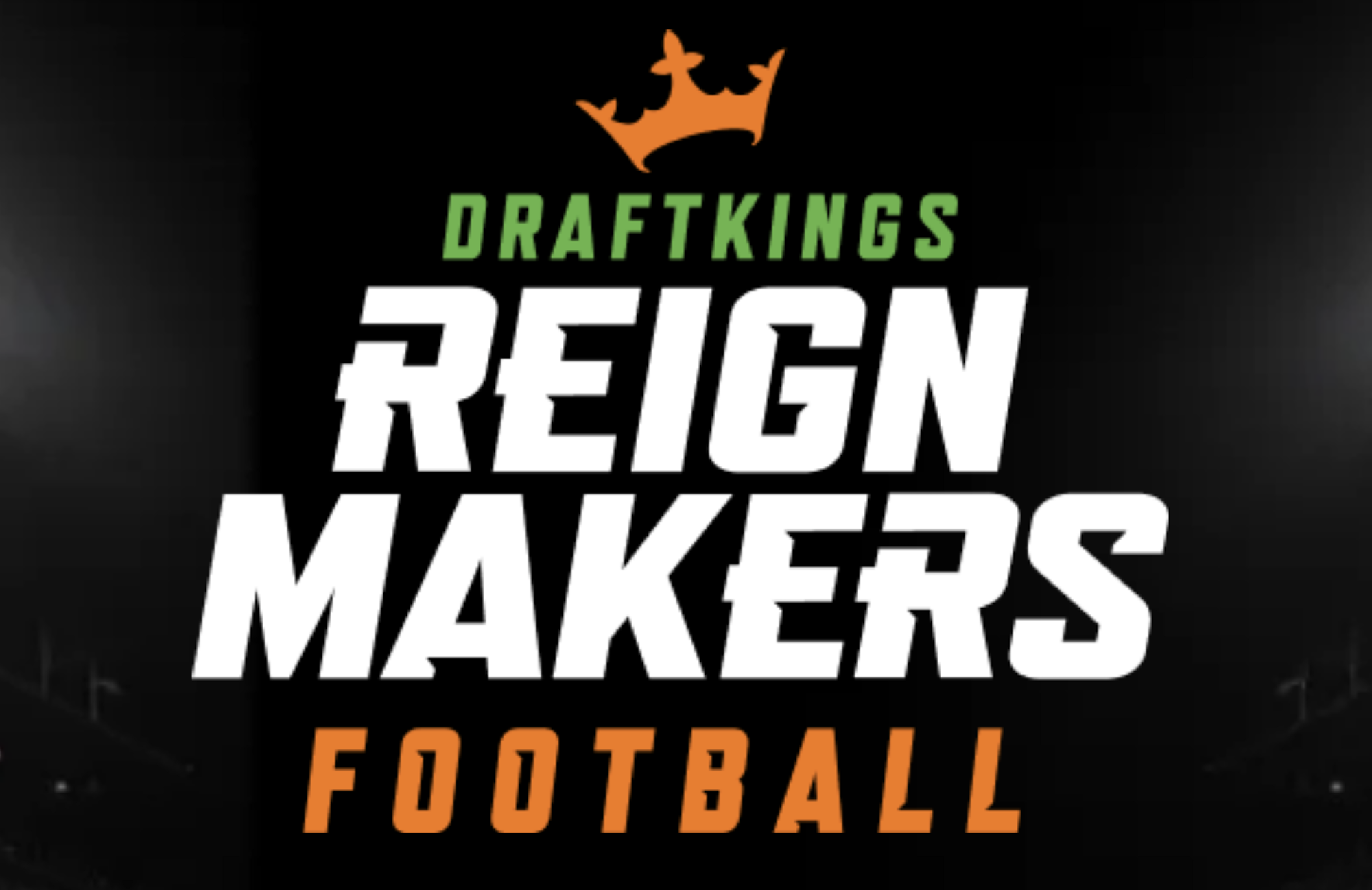
DraftKings, the daily fantasy sports and sports betting company, abruptly shut down a program called Reignmakers on Tuesday, posting a notice on its website and associated app and sending a mass email to some subset of its user base. Reignmakers, which the company launched in 2021, offered pay-to-play competitions in NFL football, PGA Tour golf and UFC mixed martial arts. The decision to eliminate the entire program, DraftKings says, was not made lightly but was forced “due to recent legal developments.”
DraftKings has yet to specify what “recent legal developments” are troubling its now-dead Reignmakers product. The company was sued in U.S. District Court in 2023 by a Reignmakers player named Justin Dufoe, who accuses the company of dealing in unregistered securities, taking advantage of relatively unsophisticated “retail investors,” and failing to market and support Reignmakers to the degree necessary to return to its users the financial benefits expected. DraftKings filed a motion in September to dismiss Dufoe’s complaint, but that motion was denied on July 2. A scheduling conference was held by the parties on July 29; Reignmakers was permanently shut down on July 30. A DraftKings spokesperson reached by Defector on Wednesday declined to confirm whether Dufoe’s complaint is the “recent legal development” that forced the company’s hand.
Users of the Reignmakers NFL product, who in recent days began murmuring on social channels about a notable lack of DraftKings activity so close to the start of the NFL preseason schedule, were caught off guard and, in some cases, devastated by the news. Members of the DraftKings Discord server, where all Reignmakers-related channels were abruptly shut down and locked following the announcement, flooded a general channel in various states of panic, sharing news, theorizing, lamenting, and, in some cases, openly worrying about whether it would be possible to recoup any decent fraction of the genuinely impressive sums of money they had invested in this DraftKings product.
Reignmakers is nominally a daily fantasy contest—users build lineups of players and then pit those lineups against other users’ lineups for cash prizes—but it’s actually a distributor of nonfungible digital tokens (NFTs), originated and sold by DraftKings, and then frequently resold on a dedicated secondary marketplace also hosted by DraftKings. At the lineup-building level, Reignmakers functions like a card-collecting game, with artificial scarcity driving the prices of the most coveted cards to insane, eye-popping heights. Reignmakers NFTs are tiered and offered in timed drops designed to heighten the sense of scarcity. A user can enter a lower-tier contest using a collection of NFTs that may have cost a few hundred dollars in total (or that were earned by purchasing random packs of NFTs that offer generally low odds of scoring top assets) and throw their lot in with hundreds of casual users competing for relatively unimpressive rewards. Random packs at the lowest tier would have prices as low as a few dollars; mid-tier cards—Star and Elite tiers, I’d guess—could cost a player upwards of $1,000.
But players interested in hunting down the biggest payouts, not just from games but from leaderboard prizes and other assorted prizes, would need to enter higher-tier games, and to enter the higher-tier games, a user’s collection needed to include higher-tier NFTs. DraftKings ensured that these cards were extremely scarce and could only be purchased directly on the marketplace at prices that any reasonable person would consider utterly insane.
For example, the highest-tier Reignmaker contests (called the Reignmakers tier, of course) have in the past been limited to listings with at least two of the highest-tier, rarest NFTs (also the Reignmaker tier) plus three NFTs from the second-highest tier (Legendary). NFTs at these tiers are expensive. Not just expensive in the way that, like, a steak dinner is expensive, but expensive in the way that buying even one of them should trigger a mandatory visit to a gambling addiction counselor, if not sirens and a straitjacket. Back in 2022a Reignmaker-level Ja’Marr Chase NFT from something called the Field Pass Promo Set could be purchased directly from the DraftKings Reignmaker Marketplace for a whopping $32,100.
Reignmakers users purchased NFTs at various levels with the expectation that owning them would convey better odds of winning contests hosted on DraftKings. This was the gamification element of Reignmakers, which emerged several months after DraftKings began trading and minting its NFTs. But as with all NFTs, a very large part of the real appeal for its buyers was the expectation, however insane, that these worthless, virtually worthless, infinitely duplicable digital images would increase in value over time. Now that both the Reignmakers game and the Reignmakers marketplace have been shut down, Reignmakers NFT holders are worried that their investments may have suddenly lost all monetary value. One Discord user described Tuesday as “a bad day to wake up and realize you have $2,000 worth of unopened NFL Rookie Packs”; Another user asked the group if they should expect “a refund” on the $10,000 they’ve already spent on Reignmakers NFTs this year. A pessimistic Reddit user posted tuesday that they would sue DraftKings if they were forced to take a total loss on a Reignmakers NFT collection worth approximately $100,000.
The game (scam?) was built to make numbers like these not only possible, but somewhat easily achievable. A user who intended to compete from a position of strength in multiple overlapping high-profile contests at the same time, and who had been in the blockchain madhouse for a period of years, could easily have spent six figures on Reignmakers NFTs. DraftKings used non-gaming incentives to entice players to spend more and more money, much like casinos give away free suites to players who over-bet on blackjack. Another Reddit user lamented the loss of the additional prizes and ranking bonuses he had hoped to earn in the upcoming NFL season by having a portfolio of NFTs that had reached the highest levels of value and prestige. “I was already loaded up on 2024 creation tokens and rookie debut cards,” said this Reignmakers userwho claimed his portfolio was finally “close to the top 250 overall.”
Dufoe’s complaint says the NFTs minted by DraftKings for Reignmakers qualify as securities, function like securities, and should be regulated as securities. In its motion to dismiss, DraftKings attempted to position its NFTs as game pieces — eye-wateringly expensive, yes, but essentially the same thing as Magic: The Gathering cards or Monopoly hotels. The court, in resolving these arguments, applied what’s known as “the Howey test,” referencing a case from 1946 in which the U.S. Supreme Court established a standard for determining whether a specific instrument qualifies as an investment contract. Judge Dennis J. Casper, in ruling against DraftKings’ motion, concluded that Dufoe could plausibly argue that Reignmakers’ NFT transactions represent “the pooling of assets from multiple investors in such a manner that all share in the profits and risks of the enterprise,” arguing that DraftKings’ absolute control over the game and marketplace effectively binds the financial interests of the company and the buyers, the latter of whom depend on the viability of both for their NFTs to retain any value.
Reignmakers users are different from Monopoly players in at least one crucial way: A person who buys a Monopoly board has no expectation from Hasbro that those little red and green pieces will appreciate in value. It’s a game! No matter what any hysterically conflicted party may say to the contrary, that’s not what NFT collecting is. DraftKings had been selling Reignmakers NFTs for months before they were gamified, and Dufoe, in his complaint, cites public comments made by DraftKings spokespeople that seem to explicitly position Reignmakers NFTs as assets with independent monetary value beyond their utility in Reignmakers contests. Judge Casper, in his ruling on the motion to dismiss, cites a Twitter account associated with a podcast run by DraftKings CEO Matthew Kalish, who in a tweet described NFTs as “the opportunity to invest in startups, artists, operations, and entrepreneurs all at once.” This is probably the kind of thing that NFT peddlers should stop saying. This advice assumes, of course, that NFTs will continue to exist as instruments on the other side of this and other lawsuits.
DraftKings has posted a worryingly sparse FAQ at the bottom of the your ad Tuesday, anticipating but largely failing to address questions from players who see this as yet another in a long line of brutal blockchain rug pulls. In a hilarious reversal of existing Reignmakers policy, Reignmakers users are now allowed by DraftKings to withdraw their Reignmakers NFTs from their DraftKings portfolios and into their personal NFT wallets, where those NFTs will have precisely zero value, to anyone, for the rest of all time. There’s also vague language about Reignmakers users having the option to “relinquish” their NFTs back to DraftKings in exchange for “cash payments,” subject to “certain conditions” and according to an as-yet-unspecified formula that will take into account, among other things, the “size and quality” of a player’s collection.
Reignmakers users are not optimistic. Those who claim to have been victims of other blockchain market crashes are warning their peers on Discord and Reddit to expect payouts that amount to pennies on the dollar; in the absence of any clarifying information, users are unsure whether cashing out their NFTs from Reignmakers to their personal NFT wallets, for reasons that completely pass any and all understanding, would effectively preclude the possibility of delivering these silly digital tokens back to DraftKings. It remains to be seen what exactly DraftKings has in mind with the “certain conditions” attached to the delivery process. There is much that has yet to be resolved. A DraftKings spokesperson contacted by Defector indicated that more time would be needed to answer a list of specific questions and issued a statement noting that it is “in DraftKings’ DNA to innovate and disrupt to provide the best possible gaming experiences for our customers.” The original complaint is embedded below.
Do you know anything about the demise of Reignmakers, either from the consumer side or from the DraftKings side? We’d love to hear from you. Get it in touch!
Recommended
NFTs
There Will Be No More ‘Mario & Sonic’ Olympics Because of NFTs

Nintendo and SEGA have been teaming up with the Olympics for several years now in the popular Mario & sonic in the Olympic Games series, but a new report claims the International Olympic Committee has abandoned the series in favor of new deals in eSports and NFTs.
According to Eurogamer“A veteran behind the series,” Lee Cocker, told the outlet that the IOC chose not to renew its license with SEGA and Nintendo, letting it expire in 2020. “They wanted to look at other partners and NFTs and eSports,” Cocker told Eurogamer. “Basically, the IOC wanted to bring [it] turn inward and look for other partners so they could get more money.”
Mario & Sonic at the Olympic Games is a series that has been running since 2008, with six main games covering the regular and Winter Olympics. In the games, players could control various characters from the Mario and Sonic franchises and compete in Olympic sporting events.
It’s no secret that NFTs are a big part of this year’s Paris 2024 Olympics. Olympics Go! Paris 2024 is a mobile and mobile-connected game your site states that players can “join the excitement of the Paris 2024 Olympic Games with nWay’s officially licensed, commemorative NFT Digital Pins collection honoring Paris 2024!”
As for eSports, Saudi Arabia will host the ESports Olympic Games in 2025. This is part of a partnership with the Saudi National Olympic Committee (NOC) that is expected to last for the next 12 years and is expected to feature regular events.
IOC President Thomas Bach said: “By partnering with the Saudi NOC, we also ensure that Olympic values are respected, in particular with regard to the game titles on the programme, the promotion of gender equality and the engagement with young audiences who are embracing esports.”
In other news, Someone claimed they’re suing Bandai Namco because Elden Ring is too difficult.
-

 News12 months ago
News12 months agoMore Crypto AI Alliances Emerge Following $7.5 Billion Token Merger — TradingView News
-

 News12 months ago
News12 months agoOver 1 million new tokens launched since April
-
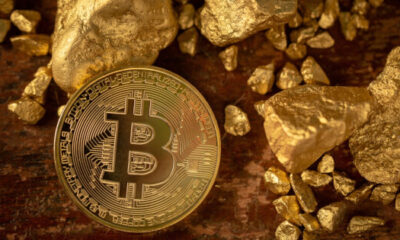
 Memecoins9 months ago
Memecoins9 months agoMemecoins dominate major derivatives in terms of open interest | Flash News Detail
-
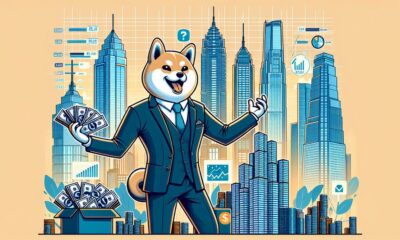
 Altcoins11 months ago
Altcoins11 months agoAltcoin Investments to create millionaires in 2024
-
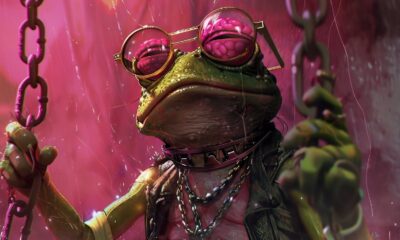
 News9 months ago
News9 months agoInvest Now: The Hottest New Cryptocurrencies of August 2024 That Could Skyrocket
-
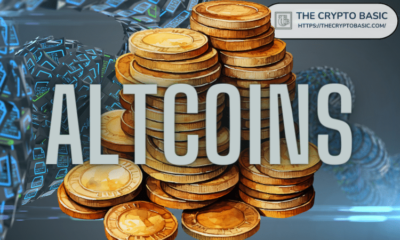
 Altcoins9 months ago
Altcoins9 months agoOn-chain data confirms whales are preparing for altcoin surge with increased buy orders
-
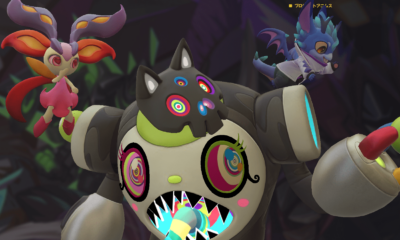
 NFTs9 months ago
NFTs9 months agoRTFKT Announces Project Animus Reveal, Launches Egg Unboxing Event Amid Mixed Reactions | NFT CULTURE | NFT News | Web3 Culture
-
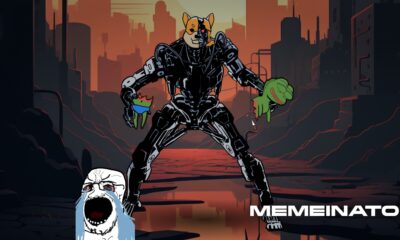
 Altcoins9 months ago
Altcoins9 months agoHot New Altcoin: Memeinator’s Price Upside Potential in July
-

 Videos12 months ago
Videos12 months agoMoney is broke!! The truth about our financial system!
-

 Memecoins11 months ago
Memecoins11 months agoChatGPT Analytics That Will Work Better in 2024
-
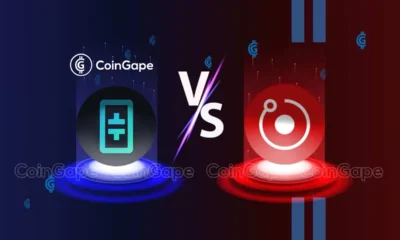
 Altcoins12 months ago
Altcoins12 months agoRender vs. Theta; Which DePIN Altcoin to buy in May
-

 News11 months ago
News11 months ago5 Crypto Airdrops After Notcoin to Watch Out for in June 2024







